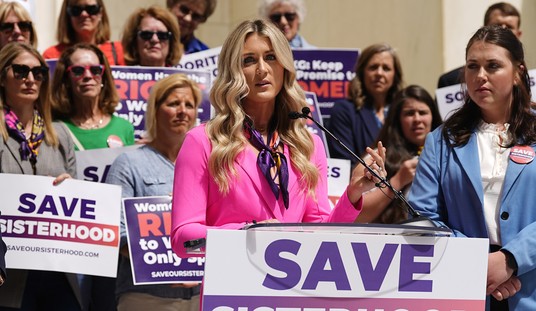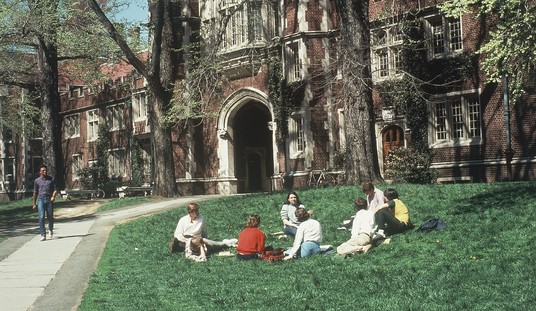It has only been a few weeks since Sarah Jeong and her tweets became a big topic in the news. Yesterday, a somewhat similar case concluded with the firing of a Rutgers history professor who had published comments bashing white people on his personal Facebook page. From the Washington Post:
In May, James Livingston, a tenured professor who is white and lives in the Harlem neighborhood of New York City, wrote on social media about his frustration over the gentrification of the neighborhood. “OK, officially, I now hate white people,” he posted. “I am a white people, for God’s sake, but can we keep them–us–us out of my neighborhood?”
He wrote that the restaurant he was in was “overrun with little Caucasian —holes who know their parents will approve of everything they do,” and announced, “I hereby resign from my race.”
The post was removed by Facebook for violating standards on hate speech. Livingston later wrote, “I just don’t want little Caucasians overrunning my life … remand them to the suburbs, where they and their parents can colonize every restaurant.”
That might have been the end of it except that the story was picked up by the Daily Caller and others. Livingston says that he immediately began getting harassment online and Rutgers apparently also got some nastygrams from people angry about the comments. Livingston, for his part, says he was really trying to make a comment about gentrification in his neighborhood, not to badmouth people based on race.
The school decided to fire Livingston, but the Foundations for Individual Rights in Education (FIRE) has asked Rutgers to overturn the decision on the grounds that it is punishing a professor for his exercise of free speech. FIRE argues that none of the complaints received by Rutgers came from students, therefore there’s no reason to assume Livingston’s comments would have any impact on his job. In essence, FIRE faults Rutgers for giving in to an online mob.
It was that racist, media-driven mob to which Rutgers capitulated, according to Livingston and FIRE. The civil liberties group also claims that the guilty verdict could constitute a violation of the professor’s First Amendment rights, as well as his academic freedom as a professor.
“Allowing human resource administrators to tell a professor of 30 years what he can and can’t say on Facebook means that the tradition of academic freedom in our public universities is essentially over. I respect that tradition too much not to protest,” Livingston said in a statement. “I very much hope the university will see its way to overturning this finding of ‘reverse racism’ and reaffirming the democratic freedoms that Rutgers has long stood for.”
Rutgers wrote a 10-page report which argued that because many of the complaints were anonymous it’s not actually possible to know whether some of them came from students:
Professor Livingston has asserted that no university students or faculty (that we are aware of) have yet complained directly to OEE or university administration – so the response to his posts is nothing more than internet trolls attacking a liberal academic. I first note that the very fact that the complaints are anonymous means we cannot confirm that they were not registered by members of the university community. Many of the communications received came through an internal complaint system (i.e. the Rutgers Compliance Hotline), which arguably suggests that the individuals expressing those views may very well have some connection with the university. Further, it seems highly improbable that every complaint came from a neo-Nazi or an internet troll and is therefore not legitimate.
In any case, the genesis of the complaints, while relevant to an extent, is only one factor to consider when analyzing Professor Livingston’s speech and its impact on the university’s mission. Many complainants cogently reported concern about the university implicitly sanctioning racial bias against Caucasians. Students interviewed by the local news station said they would be uncomfortable taking a class with him. Such a response to Professor Livingston’s speech indicates that he damaged the university’s stated mission of inclusiveness.
In other words, not everyone who responded was an alt-right lunatic. Some of the people may have been students and some had reasonable complaints. So Rutgers concludes that this could have an impact on the school and its reputation even though the comments themselves were made outside of work. This portion of Rutgers’ reasoning for the firing is also getting some attention:
Professor Livingston argues that his initial Facebook post is not racist because Caucasians, as the group holding the most “social capital, ” cannot be discriminated against. In other words, his position is that “reverse racism” does not exist.
While Professor Livingston’s assertion is frequently espoused in academic circles, applicable federal and state laws do not exclude any race from their protections. Similarly, the university makes no such distinction, but blanketly prohibits discrimination based on any race. As such, from a legal and Policy perspective, “reverse racism,” to the extent it is defined as treating someone unfairly because they are white, is indeed possible and prohibited.
I generally agree with FIRE on free speech issues and I’m not comfortable with the mob tactics that lead to people being fired for things they say on social media, even racist things. That said, I agree with the reasoning applied by Rutgers about why this speech shouldn’t be overlooked simply because it was aimed at white people. And since Professor Livingston himself is white and not a disadvantaged individual, he’s not punching up in any significant way. And when it comes to the classroom, he undeniably has more power than his students. So even if you buy into the left’s power-analysis of racism, that doesn’t really help Livingston’s case. He has the actual power over the people the school is concerned about: prospective students.
This is a close call. My gut says the mob is always wrong, but I also think there’s no question Livingston would have been fired for saying something like this about any other race. Also, the Rutgers analysis seems fairly thoughtful and not just a knee-jerk reaction to the mob. So maybe this is a bad outcome in the grand scheme of things, but I’m not sure it’s an unfair one in any meaningful sense.








Join the conversation as a VIP Member